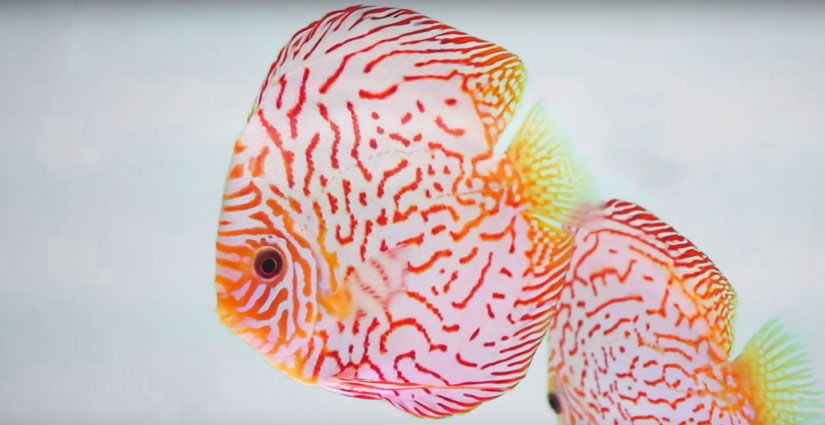

The Checkerboard Discus has a distinct pattern of white to turquoise to red stripes on its body that distinguish it from the other members of the Discus family. These stripes crisscross in such a way that the overall pattern resembles a checkerboard; hence its name. Its coloring varies primarily with location, health, strain and diet.

There is no perfect or benchmark specimen as the Checkerboard Discus is a result of selectively breeding favorable color mutations, however Checkerboard discus with defined lines, strong coloration and circular shape are the most sought after and will generally command a higher price. The Checkerboard Discus is peaceful and placid in nature making it a good community fish for the advanced aquarist. Although the Checkerboard Discus us known to become a little territorial during breeding.
The Checkerboard Discus requires good flow in a properly filtered aquarium. There should be minimal temperature fluctuation with a controlled temperature range between 79° to 86°F. As with other species of Discus fish, Checkerboard Discus thrive in soft, slightly acidic water. This can be achieved through the use of driftwood or planted substrates.
Discus can adapt to a range of water qualities and are marginally tolerant of harder or neutral water. However, it is still recommended to house the Checkerboard Discus in soft, lower pH water. These conditions must be met for breeding.
Discus are highly temperamental and can be shy upon adding them to the aquarium. The tank light should be left off for a period of at least 24 hours while the Discus explore their new home. Feeding should occur at a similar time each day to encourage boldness. If the tank is in a high traffic or sunlit area you may find the Discus are always shy. Try to avoid bright shirts, startling the fish or bumping the glass. Increased activity around the tank will help the discus become immune to outside movement. Discus are fairly intelligent and will soon associate movement with food. They should come to know their owner and make great companions over their lives.